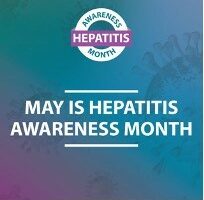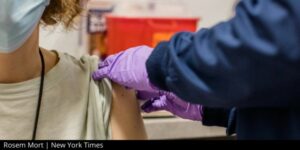Monthly Newsletter
Supporting My Mom During Parkinson’s Awareness Month
April 2023

Parkinson’s Awareness Month, observed in April, is an opportunity to increase awareness about the illness and its symptoms, as well as to support patients, their caregivers, and continued research. Parkinson’s disease is a long-term neurodegenerative disorder that affects predominantly dopamine-producing neurons in a specific area of the brain that affects the motor system. Tremors, movement, balance difficulties, limb rigidity, delayed muscle action and sometimes loss of cognitive function can all be symptoms of this slowly advancing but devastating illness.
According to the Parkinson’s Foundation, more than 10 million people worldwide are living with Parkinson’s disease. Approximately 60,000 Americans are diagnosed with Parkinson’s disease each year; close to 1 million Americans are already living with the disease; and this number is expected to increase to more than 1.2 million by 2030. Celebrities such as Muhammed Ali and Michael J. Fox were diagnosed with Parkinson’s.
This disease has also impacted my family when my mom, Lucie Marie, was diagnosed with Parkinson’s over 20 years ago. At this publication, we will be moving her into a wonderful memory care facility as we can no longer take care of her at home due to her advanced Parkinson’s related dementia. We are a close family, and it has been hard for us to watch her slowly decline over the past two decades from a vibrant energetic fit and engaged mom of 5, grammy of 8, and former dancer, to someone who has no control over her motor functions and full-blown dementia. Her once sparkling bright green eyes and her ability to charm everyone she met with her amazing smile, has all but faded due to physical and mental deterioration brought on by the Parkinson’s.
However, here is what I’m eternally grateful for, and one of the primary reasons I’m proud of our work at the California Biotechnology Foundation. Through the extraordinary efforts of her doctors, caregivers and the innovative research and development of Parkinson’s treatments and medicines, she has spent nearly 20 years being able to live life to the fullest – volunteering, gardening, skydiving and having more time with her family. Most importantly, my mom’s grandchildren got to spend more time with the wonderful, creative, evergreen, young at heart influence that is their Grammy. She has had such an important impact on all of us, sharing rich family history and traditions and a love of both theater and science that still profoundly influences my daughter Dylan today as she studies Drama and Socio-Cultural Anthropology and Archaeology at USC. We already miss my mom desperately, but through the miracles of her treatments she lived a longer, higher quality life and has left 8 grandchildren to carry on her legacy.
While Parkinson’s disease is still incurable, life science discoveries continue to offer the promise of better treatments, and perhaps an eventual cure. Scientists now have a better understanding of what’s happening within the proteins of the brain and how they could target them to help slow down the progression of the disease. Over the past three decades, the treatment of Parkinson’s disease symptoms has come a long way and different types of medications and new procedures have been developed, including deep brain stimulation and focused ultrasound, which can also alleviate symptoms. Researchers are also trying to find ways to reduce alpha-synuclein, a brain protein linked to Parkinson’s, and to diagnose the disease before symptoms show up.
Visit these links for more information about understanding Parkinson’s disease, living with Parkinson’s, resources and support, and advancing research and treatments.
Catch Up on Immunizations During World Immunization Week
World Immunization Week, celebrated the last week in April, brings together people from around the world to highlight the importance of vaccines and promote the use of vaccines to protect people of all ages against lethal diseases.
Since the discovery of the first vaccine more than two centuries ago, vaccines are one of the greatest achievements of modern medicine. According to the World Health Organization (WHO), vaccines prevent more than 20 life-threatening diseases and save millions of lives every year. They play a critical role in reducing the spread of, and, in some cases, eliminating the threat of the world’s many devastating infectious diseases like COVID-19.
Vaccines are used to boost the body’s immune system and defend itself against diseases such as influenza, tetanus, diphtheria, mumps, measles, chicken pox, shingles, whooping cough, meningitis, smallpox and polio. Most of these infections can cause serious medical conditions that may lead to life-long health problems or death. Because of vaccines, many of these diseases are now rare. Not only do they greatly reduce the suffering and mortality caused by illness they reduce the cost of healthcare significantly by preventing disease in the first place.
Advancements in biotechnology have made it possible to produce safe and effective vaccines to fight infectious agents, improve existing vaccines, and increase the amount of vaccine that can be produced. The progressive understanding of the human immune system, together with advances in biotechnology, have led to safer and more sophisticated vaccines targeting specific pathogen sites and inducing stronger immunity and higher protection.
Today, there are approximately 260 vaccines in development by U.S. biopharmaceutical companies to prevent diseases including HIV, certain types of cancer, SARS, Zika, Ebola, Alzheimer’s disease, allergies, autoimmune disorders and many more. These vaccines offer significant hope for the future.
However, after over three years of immunization backsliding caused by COVID-19 pandemic disruptions, an effort must be made to catch-up, restore and strengthen immunization services to reach the millions of people missing out on the life-saving benefits of vaccines and stop outbreaks from accelerating. The key is to continue providing affordable access to effective vaccines for everyone who could benefit from them as well as ensuring that anyone who needs a vaccination receives one.
World Immunization Week 2023 will mark the beginning of a year-long campaign with the theme: “The Big Catch-up” representing a global push to vaccinate millions of children and return to pre-pandemic vaccination levels. For more information about where to get immunized, visit the California Department of Public Health.
Stay informed on the latest news and trends on the economic and health benefits of this industry by visiting CABiotech.org
If you have any questions about hosting informational briefings for your colleagues serving in the legislature, contact California Biotechnology Foundation Executive Director Patty Cooper at (916)764-2434 or [email protected].



